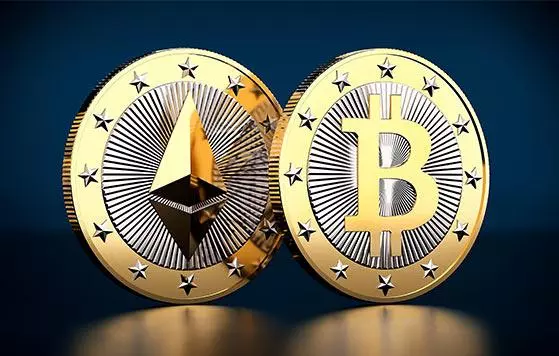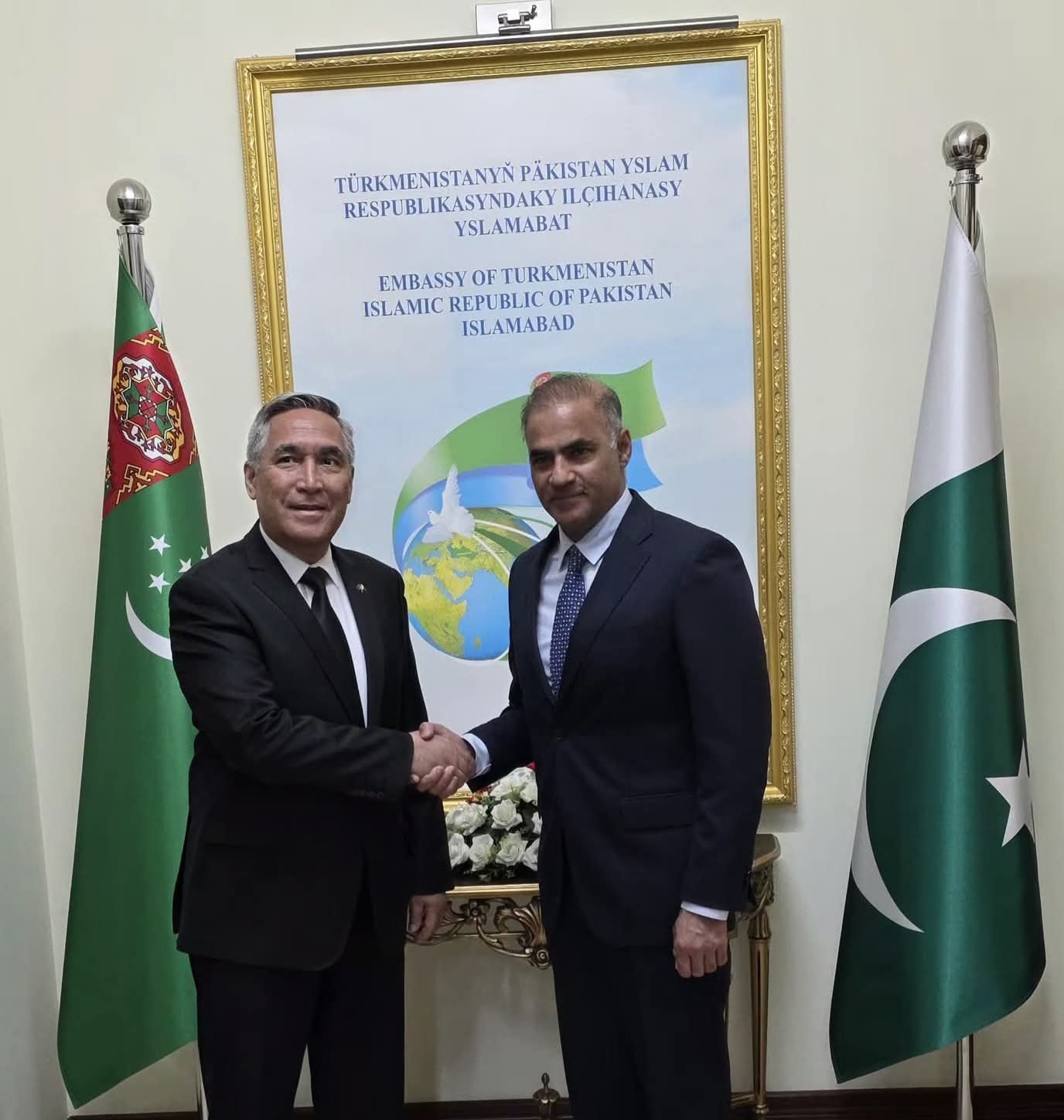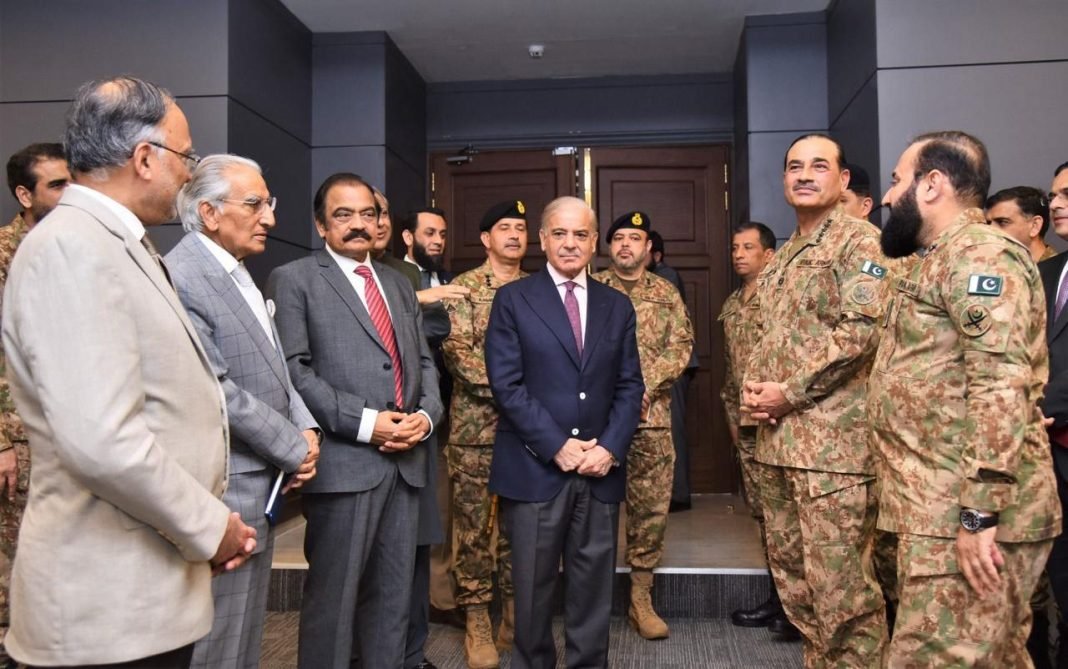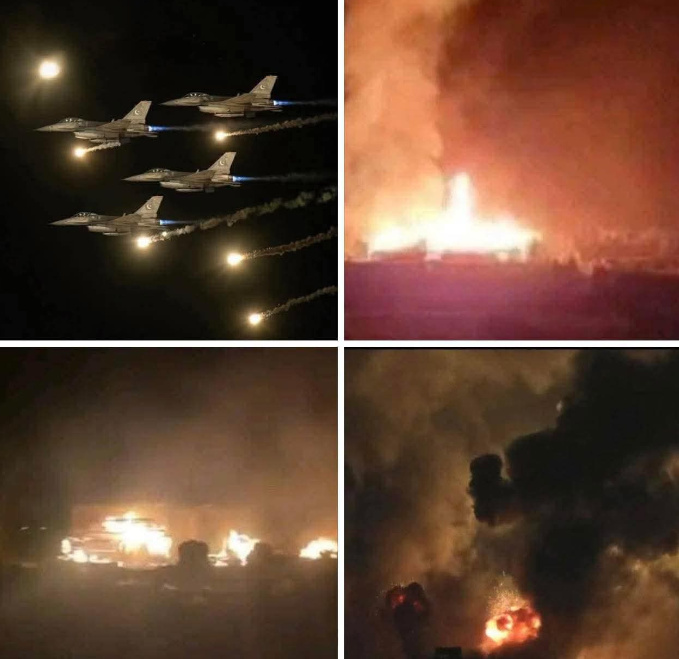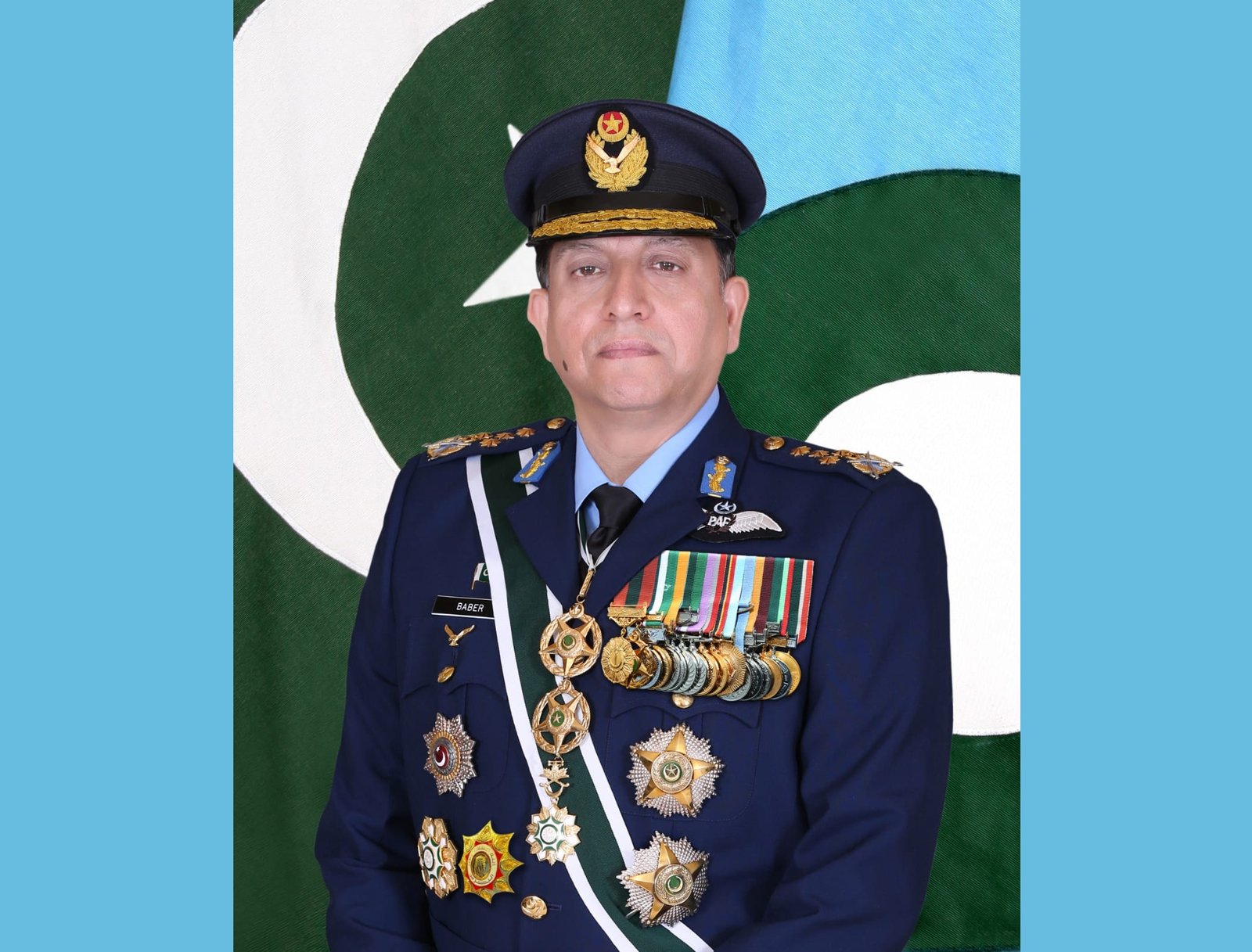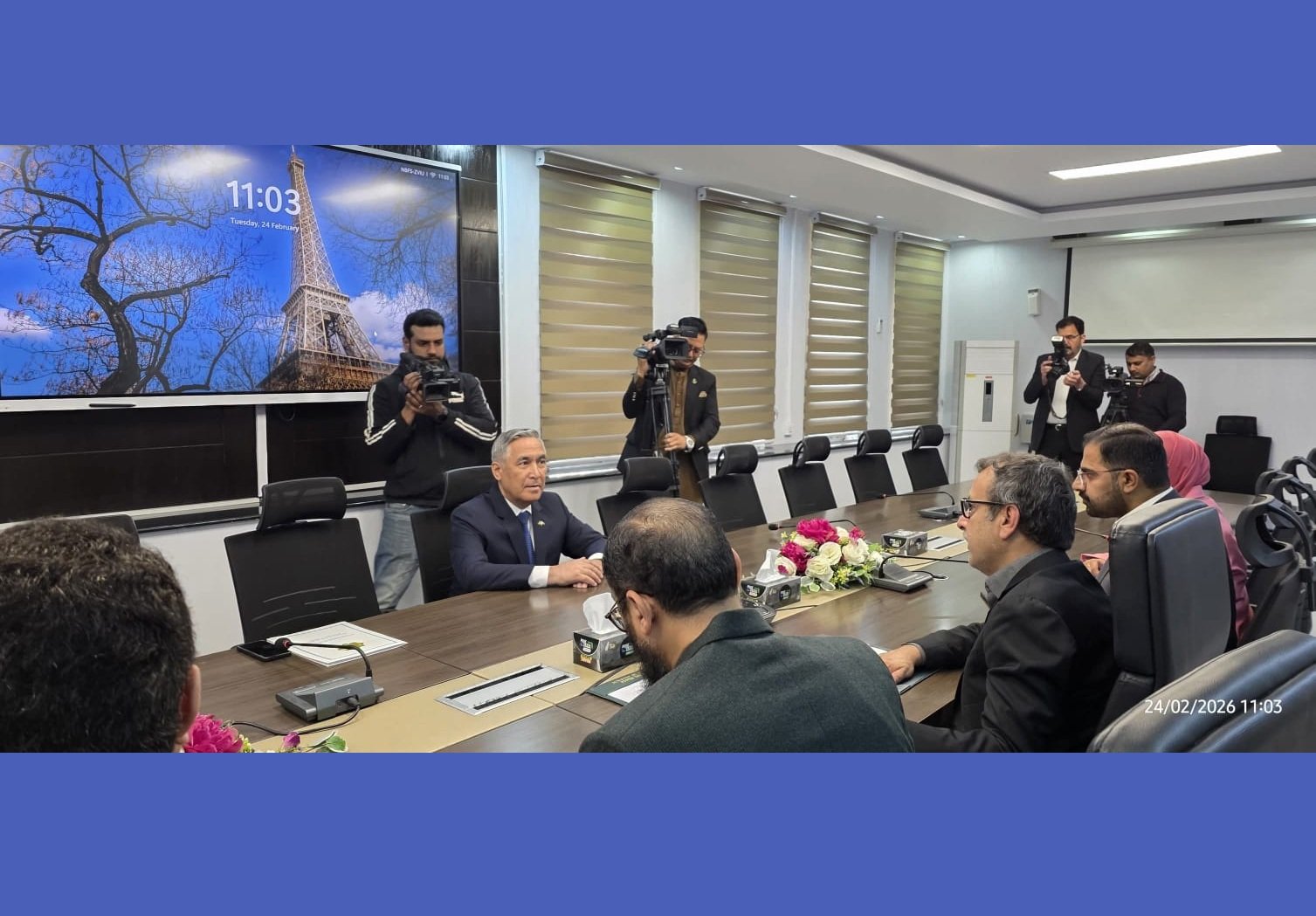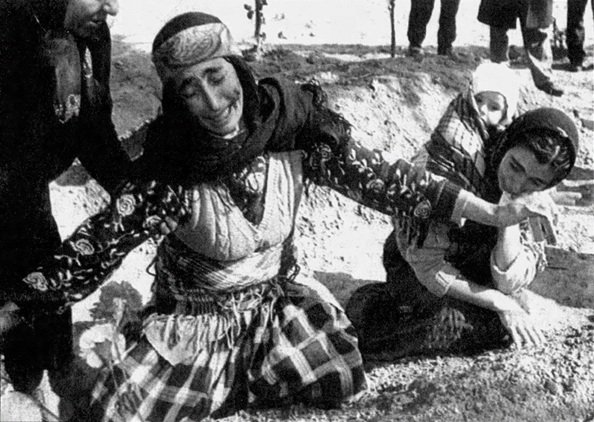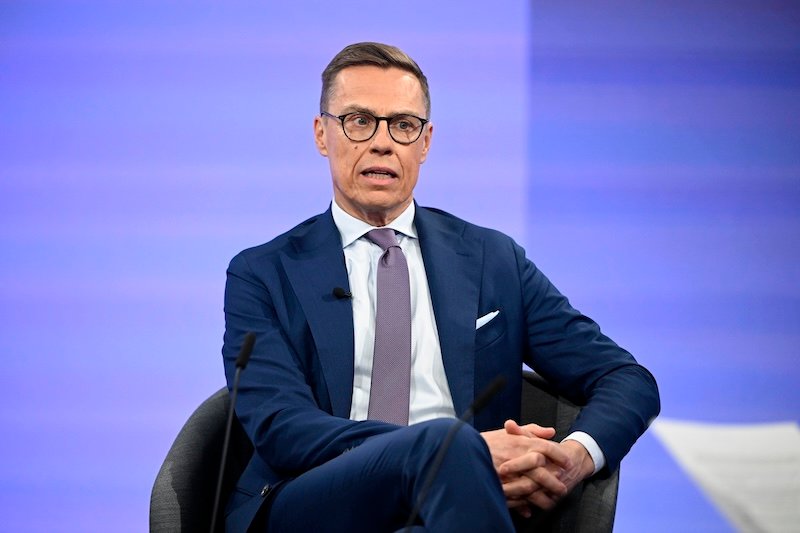Strengthening the bond between Pakistan and US
Pakistan-U.S. relations are strengthened by common strategic, economic, and political concerns. Through time the two nations gained step and a strong bond has been formed between them as critical partners. Pakistan played a key role in the United States, ‘ fight against terrorism. Economic relations between the two countries remain strong with the United States being one of the top trading partners of Pakistan as well as the major source of investment. Besides that, both countries have collaborated massively in the fight against terrorism with Pakistan being a major contributor in realizing US objectives in the region. Diplomatically, the top-level discussions and dialogues successfully settled disputes and reinforced the significance of bilateral contacts. Besides, strong people-to-people linkages built through cultural exchanges and the Pakistani diaspora in the United States also attached the two nations. Episodic difficulties are overshadowed by enduring strategic interests and common values that make Pakistan-United States relations resilient, diverse, and comprehensive.
Bilateral Economic Relations
The relationship between Pakistan and the United States is multifaceted which spans from strategic and security aspects to very significant economic ties. While the political sphere in the countries is subject to difficult moments and instability, the trade relations between the two have persevered ensuring prospects of cooperation and reward.
Trade serves as the basis of economic ties between Pakistan and the United States. The two countries interact in various fields. The U.S. is almost always one of Pakistan’s largest trading partners. Their two-way trade exceeds billions of dollars each year. Pakistan’s exports to the US include textiles, clothing, leather goods, and agricultural products, whereas it imports machinery, technology, and pharmaceuticals among others. This trade connection not only sparks the economic activities among both parties but also touches on employment creation and industrial growth.
Investments are the other significant area in the Pakistan-US economic partnership. American companies have been in the Pakistani market for quite some time and are active in different domains like energy, telecommunications, finance, and consumer goods. They bring capital, specialized knowledge, and technology transfer which is used to modernize and enlarge the industrial capacity of Pakistan. Just like Pakistani entrepreneurs and organizations, they have looked for open doors in the United States starting projects in information, wellbeing, and training regions and supporting innovation and entrepreneurship.
Also, US development aid has a strong influence on Pakistan’s socio-economic development goals. Using various assistance programs and initiatives, the United States provides financial aid, technical know-how, and capacity-building support to Pakistan in key areas like education, health agriculture, and infrastructural development. The objective of these development partnerships is to enhance institutional capacity, better service delivery, economic growth, and poverty alleviation in Pakistan.
Yet, the economic relationship between Pakistan and the United States is not always smooth sailing due to the difficulties and complexities. Imbalances in trade, obstacles to market opening, and regulatory restrictions limit the growth of the two-way trade and investment links. Also, there is geopolitical tension, security concerns, and political instability that create uncertainty among companies and investors, erode trust, and deny long-term planning and commitment.
Lately, steps have been taken to counter these issues and augment the bilateral economic relations between Pakistan and the USA. Talks and negotiations on trade and investment items have been initiated to augment mutual economic engagements and sort out old issues Also, other frameworks like the US-Pakistan Trade and Investment Framework Agreement (TIFA) act as a platform for dialogue and interaction on trade-related issues thus facilitating engagement between government officials, businesses and other stakeholders.
Political aspects, economic dynamics, and global movements are among the several issues that are likely to guide the future of Pakistan – US economic relations. It is to the mutual benefit of both sides to enhance economic cooperation and realize the highest potential for the Partnership. Pakistan and the United States can jointly develop new areas of economic cooperation and foster reciprocal prosperity and development objectives through addressing mutual obligations, trade facilitation measures, and investment and trade enabling environment.
Trade, investment, aid, and cooperation constitute the relationship between Pakistan and the United States which is diverse. Trade between two countries has been significant and the United States is one of the most important trading partners of Pakistan. Primarily goods are textiles, clothing, surgical instruments, and agricultural products. Nevertheless, the trade balance imbalance issue has been a recurrent mismatch since Pakistan exports more to the US than it imports. American companies have invested heavily in Pakistan, especially in energy, telecommunications, and consumer goods these sectors have greatly contributed to the economic development. Besides, the United States also gave financial aid to Pakistan to fund development projects which total amount varied from time to time according to geopolitical relations. Although the obstacles of security concerns and political instability exist, both states have endeavored to bolster cooperation in aspects like counter-terrorism, energy, and technology. Geographical factors accounted for by the state of Pakistan`s relations with neighboring states and the United States’ strategic interests in the region underlying the fluctuating dynamics of bilateral trade flow and set the direction of economic cooperation between the two states.
Bilateral Political Engagements
High-level bilateral summits between the United States and Pakistan, are the key interlude when leaders come together to interrogate issues of strategic importance, economic cooperation, and shared security concerns. Such meetings constitute diplomacy in which the President of the United States and the Prime Minister or the President of Pakistan have serious, purposeful talks focusing on the strengthening of the relationship between the two countries.
The ex-Pakistani President Pervez Musharraf and his counterpart for US George W. Bush took place in their economic tenures quite a couple of times. Their core theme stayed the same- the principal obstacles like counterterrorism, regional stability, and the diplomatic ties between the US and Pakistan. Besides, the most remarkable moment between the two leaders took place after the September 11, 2001, attacks. The Musharraf government took the U.S. side in the so-called war on terrorism which included backing up military operations against the Taliban and the al-Qaeda in neighboring Afghanistan. Perhaps, motivated by the desire to put pressure on Musharraf to cooperate fully in the anti-terrorism crusade and peace in the region.
When Zardari was sworn in as President Pervez Musharraf decided to resign. This was followed in due course by his first visit to the U.S. This visit focused on cementing the trust with American officials and convincing them of Pakistan’s pledge to win the terrorism battle.
On September 23rd, 2008 President Asif Ali Zardari of Pakistan Met with President Bush at the UN General Assembly in New York City. There was a significant emphasis on coordination and joint involvement in the fight against terror and establishing regional stability, particularly, on the significance of working together for a desired peace in Afghanistan. U.S.-Pakistan relationship was highlighted as a pillar of the U.S. engagement, and for the close cooperation with Pakistan in the future. The President has noted that his plan for later this year involves a trip to Pakistan. In 2010, President Zardari traveled to the U.S. to attend the U.S.-Pakistan Strategic Dialogue, with planning and a broad scope of issues being safety, financial development, and the fight against terrorism. This visit was an integral part of the efforts geared towards enhancing the relations between these two countries and subsequently thrash out areas of joint bilateral interest, other than security matters.
In October 2015, ex-Pakistan premier Nawaz Sharif had a meeting with ex-President of the US, Barack Obama. During that meeting, Sharif and Obama would probably have spoken on topics about US-Pakistan bilateral relationships, especially in the contexts of the region and the world. Afghanistan: The topic revolves around Afghanistan, and measures to stabilize the country specifically covering matters for example about the exact US troop presence, diplomatic talks alongside the Taliban, and most importantly Pakistan’s role in the peace process.
On July 21–23, 2019 the meetings of President Donald Trump and Prime Minister Imran Khan happened which revolved around the determination to enhance the bilateral ties as the world changes While attending this meeting at the White House among others, these topics were highlighted and the Afghan peace process, trade ties between the U.S. and Pakistan, and regional security issues were discussed. At this meeting, the former US President admitted that the Pakistani government had helped in the way of peace negotiations in Afghanistan. The trade pact and security cooperation were on the agenda of the lowest common denominator calls. On the part of Pakistan, efforts are in progress to introduce changes in trade relations with the United States, desiring the growing export markets for its commodities. Both presidents most likely talked about ways to improve the current framework of their trade and economic events. Apart from the traditional issues dealt with by diplomacy, the personal terms and interactions between the leaders directly impact diplomacy. Given their unconventional approaches towards politics and given that Khan is a former cricket star and now is a populist leader, their relationship is likely a bring a unique diversity. It is worth mentioning that the dialogues of summits among leaders usually cover a vine of the most linked issues, among politics, economics, and defense. Their meet-ups become pivotal to maintaining the diplomatic links and the target focus areas that are significant in the context of their own countries.
US civil assistance to Pakistan counter-terrorism cooperation
Starting from residential relations, counterterrorism has been the anchor of the partnership between the United States and Pakistan. In this matter, the US civilian assistance to Pakistan significantly contributes to enhancing counterterrorism cooperation, fighting the roots of extremism, and stabilizing the region. With targeted assistance programs, capacity-building initiatives, and institutional support, the United States aims to enhance Pakistan’s capability to combat terrorism while ensuring long-term resilience and sustainable development.
A major benefit of American counterterrorism civilian support for Pakistan is the enhancement of the capability of Pakistani law enforcement, the security forces, and the judiciary. This includes capacity building, provision of equipment, and technical assistance to empower Pakistan’s counter-terrorism forces, upgrade border security, and disturb terrorist networks. The United States wants to help upgrade the professionalism and modernization of Pakistan as well as its security apparatus in a way that a more resilient and efficient counterterrorism structure would be created and able to respond to the changing nature of the threat.
Furthermore, US civilian assistance programs deal with the core reasons for the confrontation as is the case with poverty, lack of education, and the role of communities. Through initiatives to foster economic development, widen access to education and health care, and empower the marginalized, the US aims to provide alternative options for people prone to extremist recruitment. Through socio-economic inequalities’ resolution, and encouragement of inclusive economic growth, these programs make societies stronger, more robust, and less susceptible to shaping by terrorists’ ideologies.
Visit of General Asim Munir to enhance the relations between Pakistan and US
General Syed Asim Munir, On December 15 2023 NI (M), COAS called on US government and military officials, including Secretary of State Antony J. Blinken, Acting General Lloyd J. Austin, Secretary of Defense, Victoria Nuland, Assistant Secretary of State, Jonathan Finer during his continued visit to the United States, National Security Advisor, and General Charles Q Brown, Chairman of the Joint Chiefs of Staff. The meetings discussed bilateral interests, global and regional security problems, and ongoing conflicts. Both sides agreed to continue their commitment to mapping possible bilateral cooperation opportunities to achieve common interests. In the meetings organized with the defense authorities, anti-terrorism cooperation, and defense cooperation were defined as the main areas of cooperation. Both sides reiterated their intention to increase communication and seek ways to expand mutually beneficial relations. The COAS emphasized the importance of understanding each other’s views on regional security issues and developments affecting the strategic stability of South Asia. In this regard, COAS particularly emphasized the importance of resolving the Kashmir issue by international law and relevant UN Security Council resolutions. COAS also interacted with Pakistan’s overseas community. COAS met members of the Pakistani community in a reception organized by the Embassy of Pakistan. COAS appreciated the positive role of the overseas community of Pakistan in the progress and development of the country. There are various dimensions during the interaction were discussed and COAS appreciated the efforts of the Pakistani diaspora. He welcomed and encouraged the diaspora to invest through SIFC, which has already achieved success in various dimensions. The Army Chief said: “Pakistani diaspora around the world is very respected because they are ambassadors of Pakistan and exert a significant influence on Pakistan in various fields. The Palestinian issue was also raised by General Munir. Pakistan has always maintained its stance on the issue, and today it is again calling for the UN Secretary-General to take a firm position in favor of the international community to stop the killing of thousands of people musing in Gaza, and the conflict should be settled based on a two-state solution for peace solution.
Appointment of Shahid Ahmed Khan President Advisory Committee on the Arts
U.S. President Joe Biden appointed Shahid Ahmed Khan, a Pakistani-American businessman, as a member of the President’s Advisory Committee on the Arts which the White House confirmed.
Khan, referred to by the White House as a community leader, political advisor, and businessman, is a resident of the Greater Boston area in the US state of Massachusetts. Khan is also consulting with Pakistan’s Dunya Media Group International.
Set up by the former American President Eisenhower, PACA members are appointed by the US president and function as ambassadors and representatives of the John F. Kennedy Center for the Performing Arts one of the leading cultural centers in the world for the arts nationwide.
Khan was an Advisory Board member of the Democratic National Committee and also as National Finance Co-Chair for John Kerry’s 2004 presidential campaign.
Shahid Khan is highly regarded within the Greater Boston. Bringing to PACA a diverse background gained over the last 20 years. The Asian and Muslim world is well-reflected in his tireless efforts as a community leader, political adviser, and entrepreneur representing the US values and principles through persistent dialogue and engagement.
The renowned progression of Khan’s career journey comprises mostly of being a Trustee on the Democratic Senatorial Campaign Committee along with being an Advisory Board Member of the Democratic National Committee. His upfront position as National Finance Co-Chair for John Kerry’s 2004 Presidential campaign and subsequent consultancy work across a range of US campaigns reinforce his strategic intelligence and public service orientation.
Among others, Khan helped unite the South Asian-American community during Biden’s Presidential campaign. A renowned luminary in South Asian affairs, Khan has also established Triconboston Consulting Corporation which provides business consulting services to companies in its renewable energy, IT, and healthcare expertise.
The appointment of Khan to the President’s Advisory Committee on the Arts was a cause for joy said a representative of the PACA. The wealth of his experiences, the depths of his insights, and the uniqueness of his view will magnify our goals and extend the reach of our impact immeasurably.
What is PACA?
As per the White House on the PACA, this agency has taken an integral part in preserving the JFK Center for Performing Arts, the cultural center of the Nation. The members of the committee are recognized civic and cultural leaders who are appointed by the President of the United States to be local representatives for the Kennedy Center. The Centre views PACA appointees as ‘Arts Ambassadors’, one of its mechanisms of spreading its influence nationally. The Committee is a place for national communication where its members exchange their opinions on artistic programming of the Centre with the Kennedy Center. Starting its journey over six decades ago back in 1958, PACA has been an unwavering support for the Performing Arts. – It acts as a country-wide pattern, extremely interlacing the national artistic awareness and bringing the center’s idea to life.
Visit of Shahid Ahmed Khan (Advisory committee on Arts) to Taxila
Members of the Presidential Advisory Council on the Arts (PACA) visit Taxila On Tuesday, January 16, 2024, Mr. Zaildar Ahsan Shah, Managing Director, Elaan Research Center to His Excellency Shahid Ahmed Khan, Member of the Presidential Advisory Council on the Arts at Zaildar’s House, Taxila Advisory Committee (PACA). E. Shahid Ahmed Khan, while touring the ancient city of Taxila, showed its historical importance and praised the beauty of the Taxila Museum, Dharma Rajka Complex, and Gandhara Art Village, which are considered the main local stone. Khalid Taimur Akram, CEO of Elaan Research Center, Zaildar Zaheer Shah, Member of the Gandhara Reconceptualization Advisory Council, and Mr. The museum boasts a diverse collection of art facts and exhibits that provide a fascinating insight into Taxila’s past and its key role as an educational and cultural center. The museum is a permanent symbol of Taxila’s heritage and its significant impact on the history and culture of the region. The museum is famous for its large collection of Gandhara art, covering the period from the 1st to the 7th century AD, especially from the ancient ruins of Taxila. After that, their schedule includes a visit to the art village of Gandhara, which will open in early 2023. This art village is a living representation of the rich culture of Taxila and the amazing works that characterize the city. After the tour, the group was invited to lunch by Zaildar Zaheer Shah, a member of the Reimagining Gandhara Advisory Board. Mr. Shahid Ahmed Khan and Zaheer Shah from the President’s Advisory Council on the Arts expressed their immense pride in being the ambassadors of Gandhara on the international stage. Zaildar Ahsan Shah thanked Shahid Ahmed Khan for accepting the request and taking the time to visit. Shahid Ahmed Khan’s role in promoting relations between Pakistan and the United States. Shahid Ahmed Khan’s visit will go a long way in improving cultural ties between the United States and Pakistan. Zaildar Ahsan Shah said the appointment of His Excellency Shahid Ahmed Khan as a member of the Presidential Advisory Council on the Arts (PACA) was a sign of honor for the Zaildar family and the culture of Pakistan.
Conclusion
Pakistan-US relations are characterized by an image of positive economic, political, and diplomatic relations that have stood the test of time. Economically, both countries have fostered significant trade relations. Encompassing several sectors such as textile, agriculture, and technology, this partnership will not only promote economic activity but also stimulate job creation and industrial growth in both countries. The top-level national activities, including meetings among officials, have proved useful in identifying shared issues and activities for cooperation. The interactions are conducted but designed to tackle such matters as terrorism, defense cooperation, regional security factors, and economic connections. For the last thirty years, Pakistani people in the US have not just brought glimpses of their homeland into the hosts’ home, but also have acted as a bridge using people-to-people contacts and produced a positive influence on both countries. Credibly, Pakistan and the United States must implement a dialogue and understanding path. Thus, these two countries can resolve the conflict and show mutual understanding and collaboration. Issues bordering on trade imbalance, economic services integration, strengthening regional security ties, and more, require long-term efforts. The latest background talks between General Syed Asim Munir and US officials come as further evidence of the continuing eagerness of both sides to bring the sides closer together and further reinforce ties. The special relationship between Pakistan and the US in the light of world tussles and breakthroughs is explainable; it offers a chance for mutual gain. High-level political engagements and summits between Pakistan and the United States have helped solve common problems. These dialogues highlight a mutual commitment to improve bilateral relations and find common ground, both countries have shown a commitment to dialogue, cooperation, and mutual understanding. As they continue to navigate the complexities of today’s world, the resilience of their bond is a testament to the strength and depth of the Pakistan-US relationship, paving the way to a future of continued cooperation and prosperity.

Mr. Zaildar Ahsan Shah is an Advocate and Managing Director, Elaan Research Center, Islamabad.

